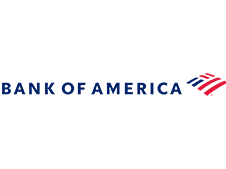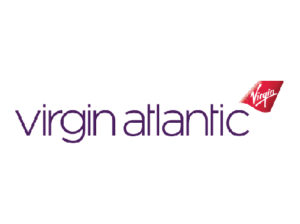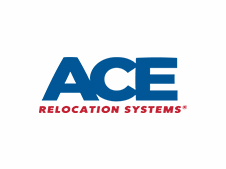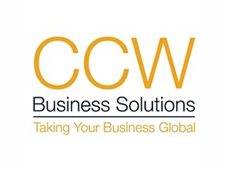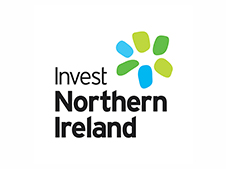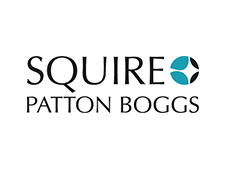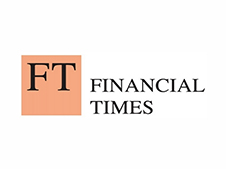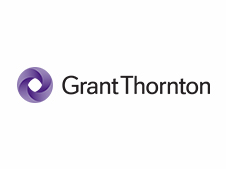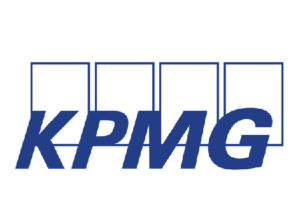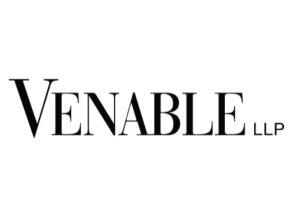Over 100 BABC members and guests turned out to hear the economic forecasts of our guest speakers at the 24th BABC Annual Economic Luncheon on January 23rd at the City Club in San Francisco. Our thanks to BABC Patron Member
Squire Sanders for once again sponsoring and coordinating this excellent event and to our panel for delivering their expert views and insights around current and forecasted conditions in the global, national and local economies and their impact on business here in the Bay Area. BABC Director Nick Unkovic welcomed our panel, which once again included Gary Schlossberg, VP & Senior Economist at Wells Capital Management and Sean Randolph, President of the Bay Area Council Economic Institute and, new to this event, Jennifer Ceran, VP Finance at Box.com and Richard Waters, West Coast Editor of the Financial Times as Moderator.
Gary Schlossberg (Vice President & Senior Economist, Wells Capital Management) opened the 2014 economic outlook stating things are ‘’turning more optimistic as we head through 2014, the bottom line for the US is that the economic prospects have improved quite a lot over the last 6 to 8 month with an IBF updated forecast projecting growth at around 3.7%’’. He continued to suggest this would make the US best positioned for sustainable growth not only here at home but also to drive such growth at a global level. There are however some ‘’yellow flags, more or less weather related but some others more fundamental, however these are being monitored and the sense is that the global economy will improve throughout the better part of this coming year, with the United States being the locomotive for this growth driving the global economy forward’’. Gary did reflect that the emerging markets are going through ‘’some issues’’, and that when we look at which economy is best positioned based on ‘’household wealth, fuel prices, policy visibility, fiscal drag and fewer tax increases’’ especially based on recent history, the US’ Economy is probably the leader.
Gary describes Europe as being in ‘’a healing process, with there being less of a headwind as it bottoms out of recession; the United Kingdom in particular is coming on stronger than expected. Europe is undergoing a relatively weak economic recovery in comparison with the states, yet finance is becoming increasingly available to the Europeans who are seeing much more structural reform. However, Europe still finds itself much more vulnerable to deflation than the United States, but with a fixed exchange rate, there is a silver lining for countries such as Spain, Italy, Portugal and Ireland, who now have the chance to create more competitive economies’’.
Gary’s outlook on China is that we can see ‘’that it is currently being pulled along by the more advanced economies of the industrial west’’ with our second speaker Sean Randolph adding that the decades of seeing China’s economy annually grow in the double digits may be over for the foreseeable future. Gary closed his opening remarks by suggesting ‘’we have a reasonably good outlook, growth is as strong as we have seen it since the growth recovery began, and this is being led by the United States, but there are some potential pot holes’’.
Our second speaker, Sean Randolph (President, Bay Area Council Economic Institute) took a step into the economic climate here in California and opened his remarks by stating that this is the first time in many years that he can say ‘’without significant qualification, that the state and region is on a strong projection for the coming year’’. ‘’At a state level, employment is growing faster in California than anywhere else in the United Stated behind Utah. There was moderate growth in the state economy, where payroll employment grew 1.7% last year, with an expected increasing again this year of around 1.9 to 2%’’. Sean indicated that the ‘’Achilles heel’’ for the state is still a weakness in the labor market, with unemployment dropping from last year to 8.9%. Though this may look like a move in the right direction, ‘’this total is still above the national average, and we’ll be hoping to see it fall to around 8% by the end of the year’’.
Generally though , Sean had a very positive outlook on the near future for California, ‘’household income is set to increase at around 3%, the construction sector is looking much much better, exports to Asia grew 13% and the exports to Europe grew around 10%, which is an optimistic sign’’. To round off his state wide analysis, Sean created a point of comparison, ‘’if we were to rate California’s economy, in terms of GDP (around 2 trillion dollars), and compare that to the economies of all the world’s nations, California would have surpassed countries such as Italy and Russia, and would be the 8th biggest economy in the world’’. Sean also added, that the state budget is not a drag for the first time in nearly 10 years, and for the first time in memory, ‘’California has a legitimately balanced budget’’.
Sean suggested that a significant driving factor for this state wide development is, as often is, the growth of the Bay area and particularly Silicon Valley. ‘’The region is outperforming both the state and the rest of the country, and that should continue. Employment is back to where it was in 2007 before all the budget cuts. This is being led predictably by the tech sector, but hospitality, tourism and construction (at residential and commercial levels) are all growing, with total GDP in the region at around $550 billion, a growth of around 7%’’. The median Bay Area house prices as of December was around $545 thousand, up 28% from last year which is always a positive (depending which side of the fence you are sitting). Since last year, foreclosures on homes – previously a huge issue – fell a massive 63% and delinquencies on mortgages also significantly dropped by 58%, which shows we ‘’are working our way through all the problems that started to arise in 2008’’.
‘’Commercial real estate in the local areas is the strongest in the entire of the United States, this is being driven, perhaps predictably by the tech sector’’, and Sean adds he ‘’does not see that changing’’, but it has led to vacancies in the City to being below 2% for the first time since 2007. ‘’42% of the entire venture capital investment in the US is concentrated here in the Bay Area’’, Sean suggests Silicon Valley is now less of a valley and more the United States’ own ‘’Tech Quarter stretching from San Jose all the way up the Bay’’. Sean believes we can ‘’look to 2014 to sustain momentum’’ and suggests the region’s economy ‘’will probably stay ahead of the rest of the country’’.
Jennifer Caren (Vice President Finance, Box Inc.) shares the optimism that 2014 can be a turning point in the fortunes from previous years. Jennifer states that Box see’s this time as one of much innovation, which is creating a lot of opportunity and technological change. She points to recent developments in app based technologies, products such as the Thermostat app (that she jokes allows her to tell her husband when to turn up the heating at home from her ride home) or Uber, that has completely changed the way we take cabs and order rides. She relates such innovative change to needed changes in the payment space, where she suggests many of the processes banks are still using seem very backward, and she’s interested to see how this upturn in the economy can create innovation in that space.
Jennifer says that in her early days at Box, there was ‘’a lot of conversation, that is really transforming now into enterprising’’. For businesses, this means that they need to ‘’ensure enterprising ideas are protected’’ signifying ‘’we’ll see great change in how IT supports their companies’’. Jennifer believes that all these new developments and general optimism around the world that Gary talked about, paired with the upturn in local affairs which Sean delved into, has created an expanding sphere for innovation and new market ideas and opportunities. ‘’There are a lot of venture capitalists, they are now willing to invest money, Box just raised 100 million and could have maybe raised more if we wanted to. Now that we have this continued upturn, there are more and more avenues for borrowing and interest rates are low enough that startups can afford venture debt’’. Jennifer says this as an example of one of the positive outcomes of the regions recent prosperity, but is quick to point out from her own experience, the difficulties it can create for her business; ‘’increased competition. We have competition from ‘the big guys’ Microsoft and Google, who do not need to worry about venture capital…at the same time, there are the ‘little guys’ now trying to compete, it will be very interesting to see how it plays out over the near future, an interesting story over the next few years’’.
Jennifer feels that in the current market there’s a ‘’belief that you have to go big… the first person there will get the competitive advantage, invest today for the future’’, Jennifer also highlights that a lot of recent investment seems to be to create growth and expansion, rather than direct profit, and points to Twitter as an example, questioning ‘’how do you express to investors that you can turn that investment into profit over the long term?’’. Some of the potential risks to this over the long term Jennifer points out to be ‘’interest rates- big jolts will create challenges; market sentiment, it changes very quickly, it’s positive right now, but for example what will happen if someone wakes up one day and says twitter has been losing money far too long? Other challenges include the rising house prices of San Francisco, how can you attract the talent to the area of innovation? How can we create a culture for everyone to thrive? It’ll be fun to see what happens’’.
The panel moved on to a discussion of the impacts of various other aspects of the economy and what effects they will have over the year to come. When discussing the emerging market, Gary advises ‘’it’s important not to tar them all with the same brush, we need to be more discriminatory, Mexico for example… growth rates are strong; they’re growing domestic rates and have a growing middle class. The difficulty for the emerging markets is that overall growth is often tied to foreign trade/investment, but there are still many profits there. The emerging markets are big movers’’.
From a startup perspective, Jennifer sees a startup as global company from day one. ‘’we think a global market is better than a domestic market, we’re focused on where we see more cloud markets. We entered the UK about a year and a half ago and have just entered Japan, so there’s clearly a demand for us. Our international team looks at countries to enter and whether to enter alone or partner up’’.
Moderator Richard Waters (Financial Times) pressed Sean on the Bay Area’s growing exports to Europe; ‘’Sean, exports to Europe are growing which is a bit of a shock, what’s the future look like for this, is this on going?’’
Sean; “We don’t know the answer to that, the numbers are surprising, but they are manufactured products, probably in computer tech, suggesting that whatever is going on at enterprise level, the tech markets are all going pretty strong. Eastern Europe is doing relatively well; the risk of the collapse of the Euro is low, which has in prior years been a very real risk’’.
Questions from the floor raised many more interesting points with regards to bitcoin, Bay Area and Southern California comparisons, the exportation of energy, green energy, the general feel for Europe and the question of raising the minimum wage.
Gary Schlossberg proposes the next big thing for bitcoin will be down to ‘’aspects of the shadow banking system. China has already outlawed it, and if it moves outside of the banking system, I think we will see regulation move in. The value of the bitcoin could work against it becoming an acceptable means of trade due to its fluctuating value’’. Richard adds that ‘’Silicon Valley could become worried it will miss out on ‘the next big thing’ if it does not make some move or other with regards to bitcoin. We’ve been waiting for the first major instance of tech affecting finance, and I think we may have found the real thing that can come along and do it, it’s a very interesting time.’’
Sean answered a question from the audience about how Los Angeles and San Diego is comparing to Northern California; ‘’the main distinction in California, is not so much a North South divide, but more an East to West, coastal to inland. The line starts around 40 miles west of the coast, and goes all the way to the Nevada border, where the statistics and metrics of economic judgment shift dramatically. The Central Valley has some clear issues, and is way behind the rest of the state’’.
Gary Schlossberg then addressed issues raised about geo-political issues/discussions arising from the United States growth as an exporter of energy and how this may affect the Middle East. ‘’As we move toward self-sufficiency, we may soon surpass Saudi as the largest exporter of energy. As the pivot that moved towards the Middle East gets pulled back due to all the issues there, the need for a Middle Eastern energy base decreases, creating a demand to manufacture and develop energy here’’.
Sticking with the energy theme, Sean Randolph responded to questions posed about the effects of climate change and green energy. California had previously been tipped to become a world leader in such fields, with its vast pool of innovation and technological entrepreneurship, had this cause been forgotten or taken a back seat with this mini boom we’re experiencing? ‘’I don’t think we should forget about it…it’s an important long term priority that California remains the primary place for green tech innovation, not necessarily the manufacturing of this energy, but more a focus on innovation and carbon emission goals, which is driving corporate development. Solar panels for example, the wind went out of the sales due to a lot of bankruptcies based around competition, but installations are growing, we should look to that as a long term trend’’.
Looking toward a more global market trend and forecast, the panelists were questioned about the attractiveness and predictions towards some of the major countries/regions outside of the United States.
‘’In China, investment is slowing’’ states Sean, ‘’but one thing to look for in the Bay area, is inbound Chinese investment. In the 2000’s and before, it was the case that the US was investing into China. But with Chinese costs rising, manufacturing moves to cheaper countries and some back here. As that’s happened, China is becoming an exporter of capital. As innovation becomes a priority to China, more tech is starting there. We’ll be seeing more investment here in the Bay from Chinese individuals, providing a shot in the arm to hotels, commerce, residential etc. Look for more Chinese money coming into the states. This will not be erratically; the Chinese seem pragmatic and are not looking for trophy investment, but more practical investments that will help fuel the economy here and our global connections.’’
Turning to Europe “The recovery in the United Kingdom isn’t spectacular, but it is better than expected’’ follows Gary, ‘’especially in terms of quantitative easing. Relatively speaking, the UK is coming on more rapidly than the rest of continental Europe’’. Jennifer adds that Box Inc. selected the UK as a location for one of their headquarters ‘’because they have talent, a great business market (and we sell to a business market) and recent changes in corporate structure that make it attractive. France needs more improvement to make it attractive to be there as a business, the prices alone make it too expensive and they need to create some business friendly ideas like in the UK, and then perhaps a real estate market would arise too’’.
On the question of raising the minimum wage, a majority of our panelists seemed to think raising it would be beneficial to the economy. That is thanks to the impact on consumer spending and the increasing gap between rich and poor, but there was also acknowledgement that this is not a simple question; for example raising the minimum could reduce the number of entry level jobs.
Mr. Unkovic thanked our panelists for another engaging and interesting discussion, and wished well to our attendees, who we hope to see next year, ‘’ticket prices– though we cannot promise deflation for 2015’s event, we will try to avoid inflation…’
We would like to extend our warmest thanks to our speakers, and to our sponsor’s,
Squires Sanders, for supporting the Annual Economic Luncheon. We look forward to next year’s event, and hope to see you there. Please see the BABC Events Calendar to keep up to date with our upcoming events.

